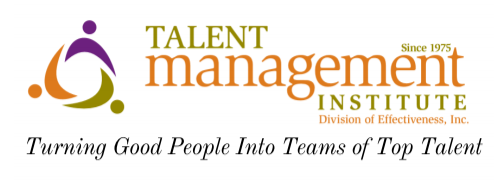Talent Management and the Number One Impact on Employee Engagement
from the Turning Good People Into Top Talent blog series
There is an increasing amount of buzz about talent management and how it relates to employee engagement. Fortunately, the definition of talent management is becoming more consistent.
Here are two examples:
- Talent management includes all the systems and process that an organization uses to recruit, retain, develop, and reward and positively impact performance.
- Talent management means selecting the right people for the right job, fully developing their essential skills, stimulating enthusiasm and commitment, and providing continuous support in the pursuit of the organization’s mission and priorities.
There are also many and varied definitions of employee engagement.
Here are two I selected:
- Employee engagement is the emotional commitment the employee has to the organization and its goals.
- Engaged employees care enough to use discretionary effort and invest their time, energy, skills, knowledge, and creativity in fulfillment of the organization’s mission.
In summary, effective talent management processes acquire and support superior performing top talent. High levels of employee engagement increase the value derived from the application of the skills and knowledge.
The onboarding process is the most significant initial influence on employee engagement. A highly effective onboarding process assures that talented candidates immediately experience your organization’s engagement culture. Effective onboarding goes beyond making a good “first impression” and is tangible evidence of what is expected. Talented employees expect to become engaged in meaningful activities and not sitting around thumbing through HR policies and procedures.
Immediate engagement is proven to attract top talent and significantly increase retention. Imagine what a talented employee thinks and feels at the end of their first day if they were not given an opportunity to “hit the ground running” and demonstrate their skills and abilities. They may question their decision and could just change their mind about working for your organization. Remember, they had other offers and chose to accept yours. Think about it.
Bob
Bob Moore, CMC®
CEO of Effectiveness, Inc and
The Talent Management Institute
“Turning Good People Into Top Talent”
